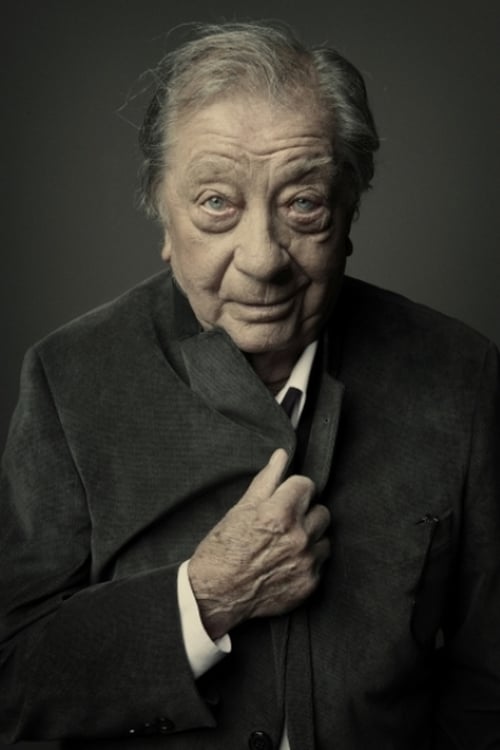Károly Makk
出生 : 1925-12-23, Berettyóújfalu, Hungary
死亡 : 2017-08-30
略歴
Károly Makk (born 23 December 1925 in Berettyóújfalu, Hungary) is a Hungarian film director and screenwriter. Five of his films have been nominated for the Palme d'Or at the Cannes Film Festival without success; however, he has won lesser awards at Cannes and elsewhere.
In 1973 he was a member of the jury at the 8th Moscow International Film Festival. In 1980 he was a member of the jury at the 30th Berlin International Film Festival. His 2003 film A Long Weekend in Pest and Buda was entered into the 25th Moscow International Film Festival. Since September 27, 2011, he is the president of the Széchenyi Academy of Literature and Arts.
Description above from the Wikipedia article Károly Makk, licensed under CC-BY-SA, full list of contributors on Wikipedia
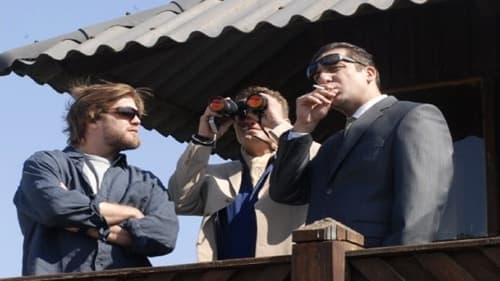
Writer
Small-town politics (corruption etc.) in Hungary.

Director
Small-town politics (corruption etc.) in Hungary.
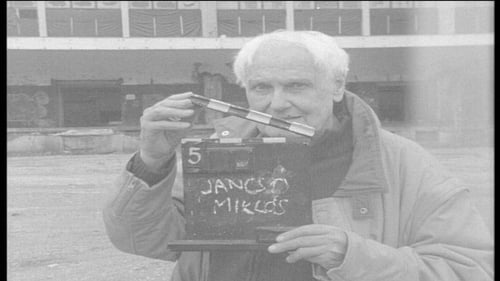
Self
Reconstructions of unrealized Hungarian films in cooperation with the greatest Hungarian film directors.

Writer
Iván is living in exile from Hungary when he receives word that an old flame is ill. His return to Budapest rekindles old memories and reopens old wounds.

Director
Iván is living in exile from Hungary when he receives word that an old flame is ill. His return to Budapest rekindles old memories and reopens old wounds.

Producer

Director
Under pressure from his publisher, Russian novelist Fyodor Dostoyevsky gets work on his latest piece, 'Rouletenberg'. In the 27 days it takes for him to complete the novel reality and fiction become blurred; in this feverish atmosphere of excess Dostoyevsky's characters come to life as he struggles to complete his work.

Director
Miklós Jancsó makes fun of his reputation for creating exceptional visuals in "A nagy agyhalál AKA The Great Brain Death." It is the most difficult vignette and while visually stunning, remains difficult to decipher, she breaks with allegorical storytelling.

Director

Screenplay
1958. In the cell of the condemned, seven men await the signs of an approaching execution. All of them recall their pasts and envision their wish-dreams.

Director
1958. In the cell of the condemned, seven men await the signs of an approaching execution. All of them recall their pasts and envision their wish-dreams.

Director
This sarcastic drama is taken from the popular Hungarian novel by Tibor Dery. A terminally ill writer (Jozef Kroner) of national prominence watches as family and friends gather like vultures for his imminent demise. Relli (Alexander Bardini) smiles and pretends to be the writer's friend as he tries to get his hands on an unpublished manuscript. The opening scene is the highlight of the film. While the dead writer is being laid to rest in a national funeral, he emerges from the coffin and walks into his own grave while the mourners flee in terror.

Director
Insulted when his screenwriter wife writes a leading role for a younger man, aging Broadway idol Fitz Wynn disguises himself as a handsome young Italian.
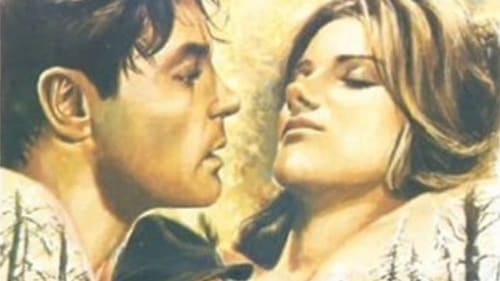
Writer
A hunting party arrives at a lodge in the Tatra mountains in Slovakia, where one woman in the party had “accidentally” shot and killed her first husband some time ago.

Director
A hunting party arrives at a lodge in the Tatra mountains in Slovakia, where one woman in the party had “accidentally” shot and killed her first husband some time ago.
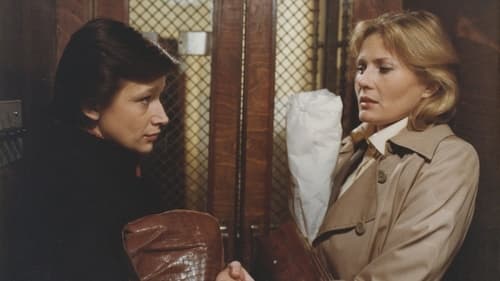
Writer
Political and sexual repression in Hungary, just after the revolution of 1956. In 1958, the body of Eva Szalanczky, a political journalist, is discovered near the border. Her friend Livia is in hospital with a broken neck; Livia's husband, Donci, is under arrest. In a flashback to the year before, we see what leads up to the tragedy. Eva gets a job as a writer. She meets Livia and is attracted to her. Livia feels much the same, but as a married woman, has doubts and hesitations. In their work, they (and Eva in particular) bang up against the limits of telling political truths; in private, they confront the limits of living out sexual and emotional truth.

Director
Political and sexual repression in Hungary, just after the revolution of 1956. In 1958, the body of Eva Szalanczky, a political journalist, is discovered near the border. Her friend Livia is in hospital with a broken neck; Livia's husband, Donci, is under arrest. In a flashback to the year before, we see what leads up to the tragedy. Eva gets a job as a writer. She meets Livia and is attracted to her. Livia feels much the same, but as a married woman, has doubts and hesitations. In their work, they (and Eva in particular) bang up against the limits of telling political truths; in private, they confront the limits of living out sexual and emotional truth.

Writer
Satire from the makers of hungarian classic Love (1971): director Károly Makk and writer Tibor Déry. Made for TV.

Director
Satire from the makers of hungarian classic Love (1971): director Károly Makk and writer Tibor Déry. Made for TV.

Writer
During World War II Carlotta, the circus owner maintains herself, her lover and her rather run-down circus-team by illegal man-smuggling. In the year of 1944, besides the usual refugees, she even has to take Professor Máté, the renown mathematician to the Yugoslavian partisans. The team is joined by Carlotta's psychotic son who has escaped from an asylum.

Director

Director
A brothel in a small Hungarian town becomes the home of a medical student after his favorite working girls find out he's out of rent money. Trouble brews as they learn his mother is coming for a visit and they must transform the house.

Writer
Karoly Makk's heartbreaking story of two unmarried sisters who cast wistful glances back at their lives, but still believe in hope and love, earned an Academy Award Nomination for Best Foreign Language Film in 1974. In this follow-up to the director's internationally acclaimed Love, Makk once again exhibits his extraordinary skills at drawing emotionally compelling performances from his talented female leads. Makk's film opposes the bleakness of the outside world with passion, love, and loyalty.

Director
Karoly Makk's heartbreaking story of two unmarried sisters who cast wistful glances back at their lives, but still believe in hope and love, earned an Academy Award Nomination for Best Foreign Language Film in 1974. In this follow-up to the director's internationally acclaimed Love, Makk once again exhibits his extraordinary skills at drawing emotionally compelling performances from his talented female leads. Makk's film opposes the bleakness of the outside world with passion, love, and loyalty.

Director
Luca regularly visits her bedridden mother-in-law. Luca's husband, János, has been arrested on a trumped up political charge, and Luca does not know if he is still alive. Luca hides this from his mother by making up letters purporting to be from János who is directing a big film in New York. Luca discovers that János is alive, and is dismissed from her teaching job because of her husband. The dying mother anxiously awaits the return of her son from New York.

Director
Anika, the daughter of the Greek partisan refugee and the Hungarian medical student, Zoltán fall in passionate love. But Anika's mother wants her to marry a Greek, for she is very homesick and wants to go home. The under-age girl cannot protest.

Director
Péter and Pál, two notorious skirt hunters competing in wooing Oana, a pretty Romanian girl on the beach at Tihany. A couple of days later the girl gets a telegram saying that she has to leave for Bucharest immediately. The party - which has increased with Piri, the interpreter, and Ági, the hitch-hiker - gets to a Romanian village by Peter's ramshackle car, a 1921 Colymne. The car, however, breaks down.

Director
The chroniclers are diligently scribbling the history of life and deeds of the virtuous and wise King Matthias, who, in the meantime, sneaks out of the palace in disguise. Instead of attending a boring reception of the imperial deputies and papal legates, he pays his address to three pretty women from Szelistye.

Director
Peti, the young parachutist starts concurring with his fellows during the training sessions: who dares to fall free longer? Orodán, his coach decides that if needed, he would use force to make him give up this perilous rowdiness.

Screenplay
Sebők Zoltán, the brain surgeon, performed a secret abortion on his lover and the woman died. The man waiting for the autopsy (and his arrest) escapes to his father's villa at Lake Balaton.

Director
Sebők Zoltán, the brain surgeon, performed a secret abortion on his lover and the woman died. The man waiting for the autopsy (and his arrest) escapes to his father's villa at Lake Balaton.

Screenplay
Bene, tired of the professional battles of engineers and trying to escape a ship-wrecked marriage, asks to be transferred to the country. The gravest problem of the sandy region in Nagyalföld (Great Hungarian Plain) is the shortage of water. The tireless director of the local state farm asks for Bene's support, but the disillusioned man refuses him.

Director
Bene, tired of the professional battles of engineers and trying to escape a ship-wrecked marriage, asks to be transferred to the country. The gravest problem of the sandy region in Nagyalföld (Great Hungarian Plain) is the shortage of water. The tireless director of the local state farm asks for Bene's support, but the disillusioned man refuses him.

Director
Daddy Kárász, the stakhanovist worker, complains in a television interview about the fact that his family, consisting of many members, cannot get a home on their own. Kéri, the chairman of the local authority, promises to help him on the condition that if he does not, they may move in to his villa at elegant Pasarét. Nothing happens, therefore the Kárász family takes Kéri by his word. From this time on, tumultuous scenes and frequent quarrels take place in the villa between the two families.

Director
The spring of 1919. Karikás Frigyes reorganises brigade 39 at the Tisza. His most devoted soldiers are Korbély János and his followers, who remain faithful to the political commissioner under all circumstances.

Director
Three people – a returned prisoner of war, his beautiful second wife, and the possessive, hunchbacked spinster who is his sister-in-law by his first marriage – are isolated in a little house under an extinct volcano, where each strives for personal happiness but is suffocated by their dependence on the others.

Director
The flat of Doctor Bartha is wetting, the Communal Management Enterprise does not act, the doctor and his wife are at the edge of divorce. Géza would marry his colleague, Kató, but mum is sick, the apartment is small, no money. Uncle Károly is fed up with unsuitable, charlatan business managers. Vali would marry, in order not to live on Titi and Piri any more, but the selected man wants to have a woman with her own apartment. All of them have a chance by the lottery, especially by hitting twelve scores.

Director
The young worker Tóth Gáspár gets into hospital with stomachache. During the night his state is worsening. The doctor on duty, Málnási does not attend the patient despite the call of the nurse, for he spends the night with nurse Margó.

Director
Liliomfi is a 1954 Hungarian comedy film directed by Károly Makk. It was entered into the 1955 Cannes Film Festival. Set in the "Golden Era" of the wandering Hungarian theatre troupes. Mariska and Liliomfi fall in love without suspecting that Mariska's foster father, Professor Szilvay, is also Liliomfi's uncle. Soon the couple must contend with the professor's plan to make Liliomfi give up his "unrespectable" profession of acting by exposing the professor's hypocrisy, greed, and tyrannical selfishness.

Director
Venice Film Festival 1954
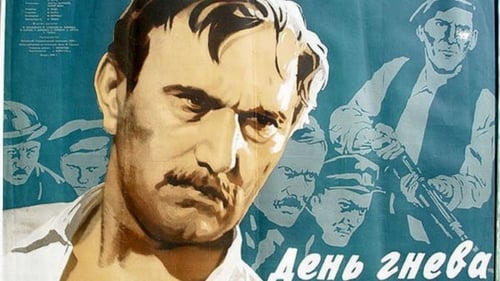
Co-Director
In May 1919 in a small rural town beside Salgótarján the local high society wants to get the power back with the leadership of dr. Máriáss, exploiting the outside attack launched against the Republic of Councils.

Director

Writer
It deals with the alleged Western sabotage of Hungarian oil production.

Director
It deals with the alleged Western sabotage of Hungarian oil production.
